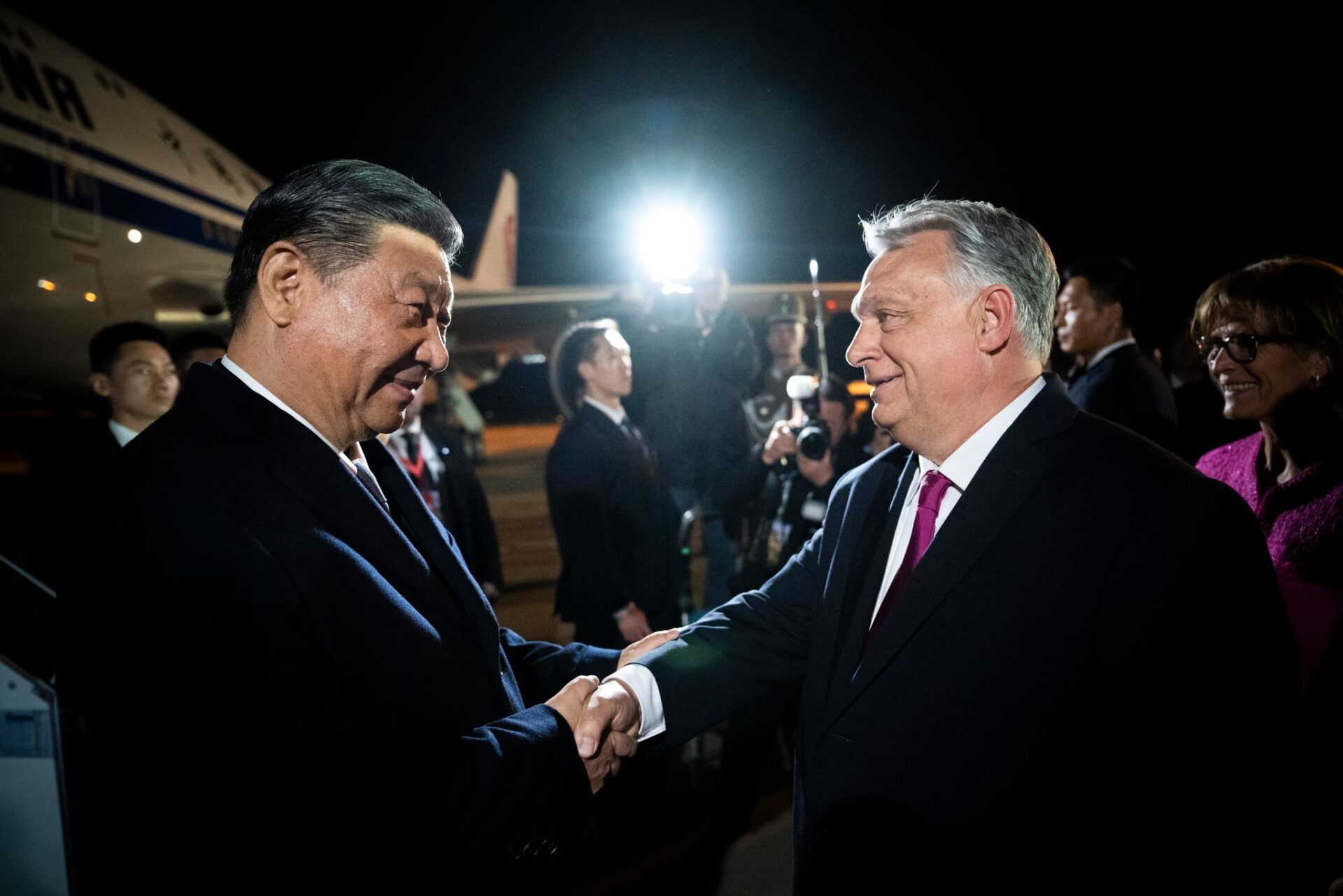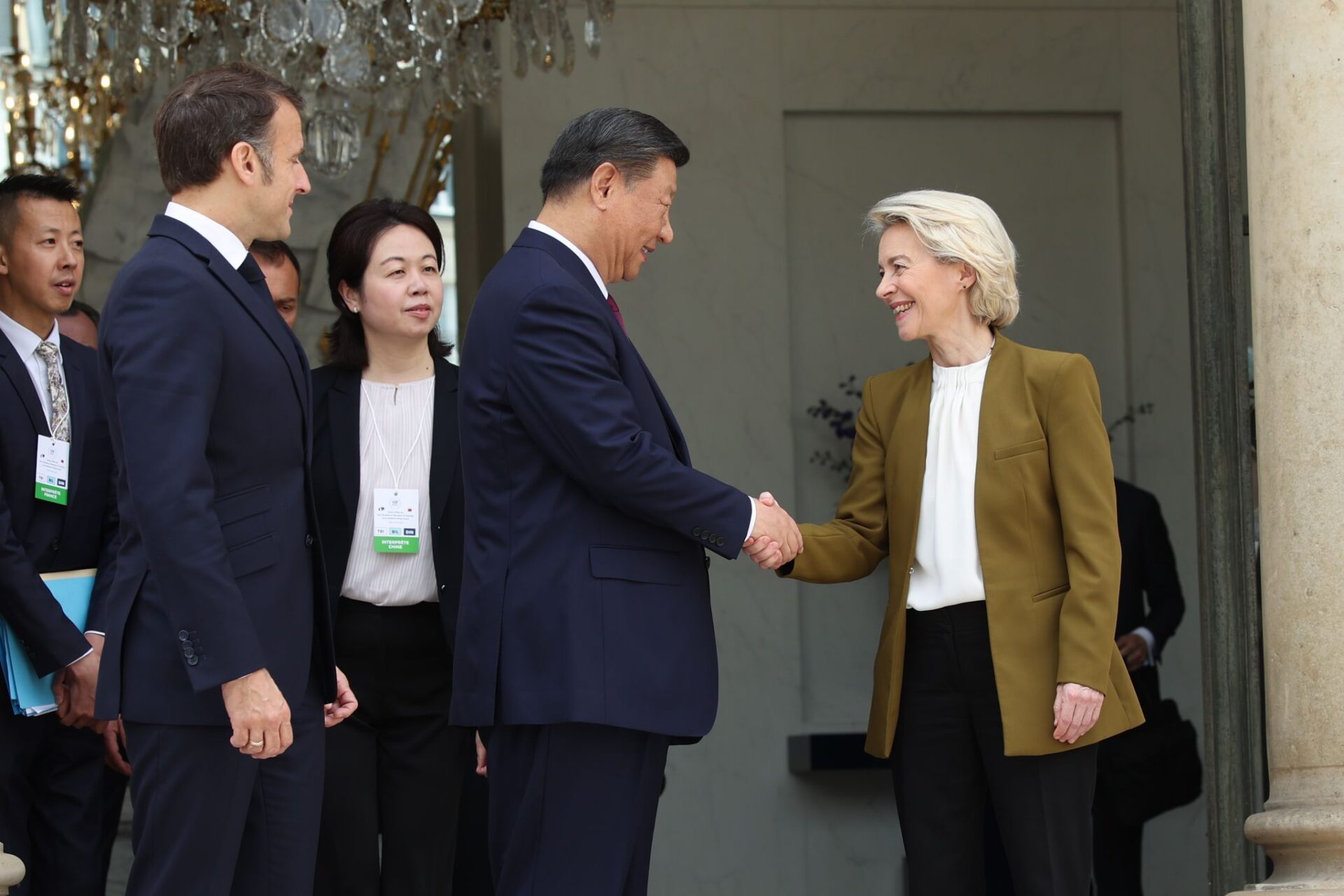 Have the article read by OpenAI (Beta). Please note that AI translations may take some time to process.
Have the article read by OpenAI (Beta). Please note that AI translations may take some time to process.Chinese President Xi Jinping departed from Budapest on Friday, completing his first European tour since 2019, which also took him to France and Serbia.
The Chinese leader sought to bridge gaps with France and the European Union, but has juggled this goal with trying to strengthen its trade alliances with Serbia – one of the most pro-Russian countries in Europe – and Hungary, which is one of the most fractious states within the EU.
Serbia and Hungary are both seen as among the most sympathetic to Moscow in Europe. While not having made major breakthroughs with France or the EU, China significantly strengthened its ties with Budapest and Belgrade.
Xi is travelling at a time when the continent is divided over how to deal with Beijing’s growing power and the rivalry between the United States and China, although there are efforts to deepen relations in the wake of the Covid-19 pandemic.
The EU is also carrying out several investigations into alleged illegal Chinese subsidies to companies operating in the EU bloc. One issue is a recent investigation into suspected unfair trade in biofuel from China in the single market, with Brussels ready to impose retaliatory measures, such as tariffs, if dumping is found.
Alleged illegal subsidies to Chinese wind turbine manufacturers in Spain, Greece, France, Romania and Bulgaria are also being analysed. Beijing has slammed the moves as “protectionism”.
No breakthrough on Ukraine and EU trade issues
The Chinese leader kicked off his tour in Paris on May 5, where he was welcomed with pomp, but also had to deal with uncomfortable questions about the Ukraine war and global trade rules.
Analysts said Xi made an impression but no real breakthroughs on trade and Ukraine tensions. “There was no breakthrough,” said analyst Ja Ian Chong from the University of Singapore, even though French President Emmanuel Macron had invited European Commission President Ursula von der Leyen to Paris to press the Chinese leader over imbalances in global trade.
On the war in Ukraine, Macron and von der Leyen urged Xi not to allow the export of any technology that could be used by Russia in its invasion of Ukraine and asked Beijing to do all it could to end the war.
Xi, for his part, warned the West not to “smear” China over the conflict. During his three days in France, Xi avoided focusing the responsibility for the war in Ukraine on Russia.
On trade, von der Leyen stressed the problem of Chinese overcapacity and the way that was leading to Chinese goods entering the European Union at prices too low for EU firms to compete with.
“Europe cannot accept such market distorting practices that could lead to de-industrialisation in Europe.”
European Commission President Ursula von der Leyen
At the talks in Paris, Xi hit back at accusations that Chinese overcapacity was causing global trade imbalances. He denied there was any problem of Chinese overcapacity in global trade and said China and Europe should address differences on trade through “dialogue and consultation, and accommodate each other’s legitimate concerns”, according to the Chinese foreign ministry.
Serbia: sealing deals and backing territorial claims
Xi’s second stop was in the Serbian capital Belgrade, where China and Serbia signed a number of important agreements to seal the bilateral relationship.
The visit coincided with the 25th anniversary of the 1999 US bombing of the Chinese embassy in Belgrade, which killed three people. The embassy was hit during a months-long, US-led NATO campaign targeting Serbian security forces who were at war with ethnic-Albanian insurgents in Kosovo. The US later apologised, saying outdated maps had led the pilot to strike the wrong target.
Serbian President Aleksandar Vučić said Serbia would have China’s firm support on all issues raised in the UN. A joint statement signed by him and the Chinese president raised the level of bilateral relations from strategic ties to a community with a shared future in the new era as the highest form of cooperation between Serbia and China, he added.
“I am proud to have been able to sign such a statement with Xi. We have enormous respect for China,” Vučić said at a joint press conference.
China has poured billions into Serbia and neighbouring Balkan countries, particularly into mining and manufacturing, and last year Beijing and Belgrade signed a free trade agreement.
Serbia has also repeatedly supported China’s claims over Taiwan and in turn, Beijing has long backed Serbia’s territorial claims over the breakaway province of Kosovo. Along with Russia, China has prevented Kosovo’s recognition at the United Nations.
At the meeting in Belgrade, Vučić declared that “Taiwan is China” and asked for Beijing’s support in the face of the “pressures that Belgrade is facing due to its “autonomous policy”, without specifying the origin of these pressures.

Orbán’s Hungary: China’s door into the EU
The last stop of the tour took place in Hungary, where the president was received by Prime Minister Viktor Orbán, with a view to intensifying cooperation on all fronts and strengthening the influence of the Asian giant in the region.
China and Hungary signed a slew of intergovernmental agreements on the sidelines of the visit, though no details were provided by Hungarian state television, the only Hungarian broadcaster allowed to attend the ceremony. Even the outlines of the agreed “comprehensive strategic partnership” are vague. Orbán said the two countries wanted to work together in the nuclear industry, too. “This has not been the case so far,” he said.
Beijing sees Budapest as one of China’s entry doors into the EU to distribute its products in the bloc, including batteries for electric vehicles. That is why it has invested billions in a country that, with constant friction with Brussels, has become the largest recipient of Chinese investment in the area.
Chinese car battery manufacturer CATL is building its second European factory near the eastern Hungarian city of Debrecen, while Chinese carmaker BYD is due to manufacture passenger cars in southern Szeged as early as next year.
China has also helped finance a new railway line between Belgrade and Budapest as part of its Belt and Road Initiative (BRI), the New Silk Road left by Italy in December. Hungary is the only EU country participating in China’s Belt and Road infrastructure and investment initiative.
Orbán, criticised for his authoritarian posture, is the EU leader most favourable to Russia and is inclined to align himself more with Beijing and Moscow, even at the cost of undermining the unity of the EU and NATO.
The Chinese leader Xi called on Hungary, which takes over the EU’s rotating presidency in the second half of the year, to “play a bigger role in the EU and push for new and greater development of China-EU relations”.
Russian President Putin to visit Beijing
With Xi Jinping’s European tour at an end, he will soon have a high-profile visitor back at home. Following the start of his fifth term in office, Russian President Vladimir Putin will travel to China this week for his first foreign visit.
The Kremlin leader is expected to arrive in Beijing on Thursday at the invitation of Xi and stay until Friday, China’s state news agency Xinhua reported. Putin’s last official state visit to Russia’s eastern neighbour was almost six years ago.
The choice of China as his first destination after his re-election in March underscores the close ties between the two nuclear powers and permanent members of the United Nations Security Council.
Since Moscow launched its invasion of Ukraine in 2022 and the imposition of Western sanctions, Russia has been largely internationally isolated. However, China has not condemned the attack and has adopted a neutral stance towards the outside world, while continuing to back its long-standing partner.
This article is published weekly. The content is based on news by agencies participating in the enr.
